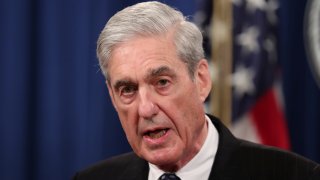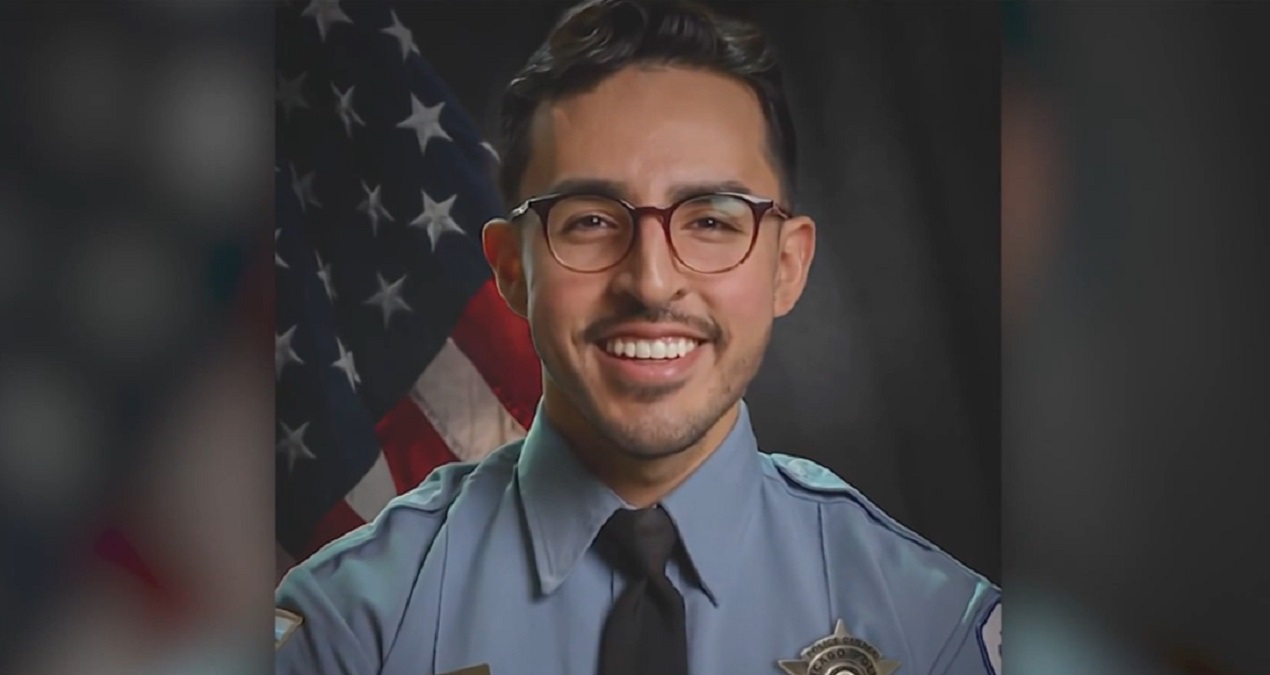
Just when you thought you had heard everything about Special Counsel Robert Mueller's investigation into Russian efforts to influence the 2016 presidential election, there may be more.
A case working its way through the federal appellate court in Washington centers on portions of the report which were "redacted," or blacked out from public view. Chicago attorney Matthew Topic argued to the court Wednesday that the public has a right to much of that information in order to understand why some individuals were examined by Mueller's investigators but never charged.
At issue is whether Mueller's team may have given favorable treatment to some individuals close to the president, including Donald Trump Jr. And the judges hearing the arguments seemed to indicate they also believe some of that information should be made public.
Traditionally, investigative reports on uncharged citizens are kept confidential to protect their privacy. But the courts have ruled that in some cases, those privacy concerns are lessened when the individuals are public officials.
Feeling out of the loop? We'll catch you up on the Chicago news you need to know. Sign up for the weekly Chicago Catch-Up newsletter here.
"It's every bit as much true if the person is a member of the president's inner circle, and might even be the president's son," Topic told the court. "The public's concern is that those people might be treated differently by prosecutors than lesser known people."
But Justice Department attorney Casen Ross argued to keep the information secret.
"The public interest in this information is far outweighed by the privacy interests of these individuals," he told the judges.
Local
But before Ross could finish the thought, Judge Harry Edwards interrupted.
"I don't know how you can say that with respect to a number of individuals who clearly have a diminished expectation of privacy because they've already been discussed in a public document," the judge said. "They were clearly a part of what was going on!"
Edwards said it would be one thing if the individuals were private individuals who had never been associated with potential wrongdoing. He noted that the people in this section of the report had been publicly named as being associated with the case.
"The facts have been revealed," he said. "And the only thing that's missing, that you've redacted, is the explanation for why the government took the position it took in the report."
Ross argued a person's right to privacy should especially be protected when they aren't charged.
"This court has repeatedly held that an individual's privacy interest is at its apex when charges are contemplated but not subsequently brought," he told the court. But Judge David Tatel suggested that argument didn't hold water in this case.
"The only thing the public does not know is the prosecutor's reasons for not indicting," he said. "And if it doesn't know that, how can the public possibly know whether the government, as they say, pulled its punches?"
Ross asked the judges to examine the full report in the privacy of their chambers, arguing that Topic and his client, the Electronic Privacy Information Center, had presented no evidence that anyone in Mueller's office acted improperly.
"They don't have to prove that!" Edwards shot back. "They can rest on the argument that in certain circumstances, the public is entitled to know---the public is entitled to understand how the government operated."
Topic had noted President Trump's repeated characterizations of the investigation as a "witch hunt," a theme the judges picked up during the continuing back-and-forth with the government's attorney.
"The president is saying it's a scam, it's a fraudulent situation," Edwards noted. "The independent counsel is saying, 'The attorney general's report on our report is not accurate, and we're releasing lots of information, we're just not going to tell you why we did what we did---that just makes no sense to me!"
It should be noted that during such arguments, judges frequently parry with attorneys, only to rule in their favor. And during Wednesday's arguments, none of the three judges indicated how he or she will rule.
The appellate panel will take the case under advisement, and is expected to render the decision within a few months.



